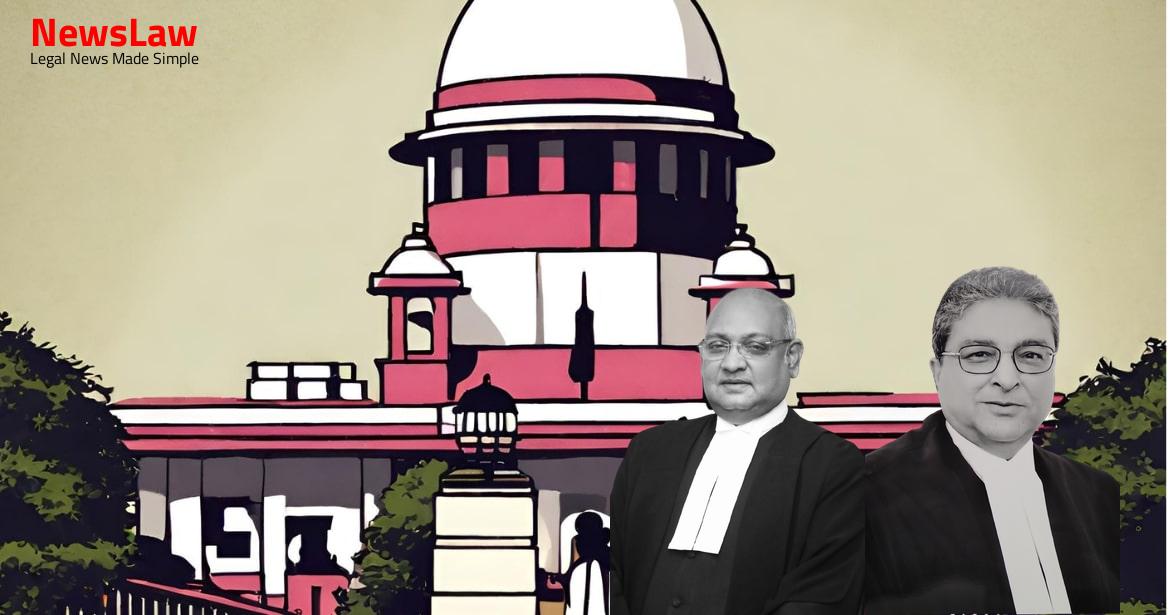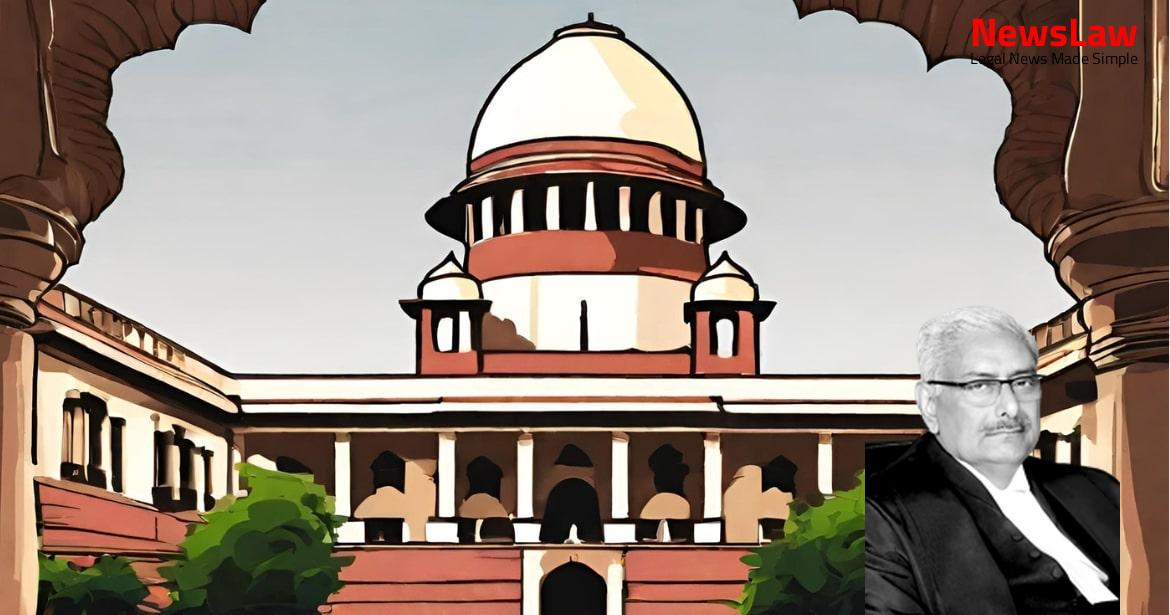In a recent legal case, the court delved into the intricate details of electricity regulations to resolve a dispute between a small scale industry and the Electricity Board regarding load reduction. The focus was on the interpretation of specific regulations governing load variations in electricity supply contracts. The court’s analysis sheds light on how regulations should be applied in such disputes, emphasizing consumer rights and adherence to legal frameworks in the electricity sector.
Facts
- Respondent, a small scale industry, had agreements with the Board for supply of electricity with varying load capacities.
- Board refused the respondent’s request to reduce load from 4000 KVA to 1325 KVA, citing agreement terms.
- Respondent filed a petition, High Court ruled in their favor, allowing load reduction.
- Board challenged the High Court’s decision via this appeal, arguing the Electricity Regulatory Commission Regulations of 2005 were discriminatory.
Also Read: Legal Analysis of High Court’s Direction on Playing Music in Public Places
Arguments
- Learned Senior Counsel for the respondent argues that the subsequent agreements for load enhancement were mere extensions of the initial agreement from 14.04.2004 with identical terms.
- The respondent’s counsel claims that according to Regulations, enhancement agreements are supplementary and not considered fresh agreements as they pertain to the same electricity connection.
- The respondent filed for load reduction on 20.09.2007, after three years from the initial agreement, citing Regulations 2(l), 9.1, and 9.2 for support.
- Appellants state that as per Regulation 9.2.1, load reduction cannot be permitted until the agreement ends, which they claim was after a fresh agreement for 4000 KVA was signed on 07.07.2007.
- The Board rejected the respondent’s load reduction application on 08.11.2007, within three years of the 07.07.2007 agreement, in accordance with Regulations of 2005.
- Arguments from both sides were heard in court with learned counsels representing each party.
Also Read: Legal Analysis on Loan Transaction Dispute
Analysis
- The consumer can apply for reduction of load with specific details and certificates.
- The distribution licensee must communicate its decision on reduction within 30 days.
- If the application is rejected, the consumer must be given a chance to be heard and reasons for refusal must be provided.
- Failure to respond within 30 days is considered approval of the reduction.
- The Board, being a monopoly supplier of electricity, has set its own terms and conditions which consumers must adhere to for load variations.
- Execution of a fresh agreement may not always be necessary for varying contract demand, it can also be done through written communication.
- Regulation 9.2.6 allows for the execution of a supplementary agreement for reduction of contract demand.
- The Board’s refusal to reduce load based on a specific clause of the agreement was not in accordance with the Regulations of 2005.
- Reduction of Contract Demand/Sanctioned Load comes into effect from the following month after sanction.
- Consumer needs to execute a supplementary agreement after load reduction and may receive a refund on excess security deposit.
- Regulations should be liberally interpreted in favor of the consumer.
- Applications for load enhancement or reduction should be disposed of within a specified time frame as per the Regulations.
- Enhancement of load is considered an extension or modification of the initial agreement rather than a completely new agreement.
- Regulations differentiate between enhancement and reduction of contract demand/sanctioned load, each with specific procedures to follow.
- Reduction of load cannot happen before the expiry of the initial agreement period.
- Application for reduction of load needs to be considered in reference to the initial agreement rather than subsequent agreements.
- Judgments in Bihar State Electricity Board v. M/s. Green Rubber Industries, Orissa State Electricity Board v. Orissa Tiles Limited, Andhra Steel Corporation Ltd. v. Andhra Pradesh State Electricity Board, and Jharkhand State Electricity Board v. Laxmi Business and Cement Company Private Limited are distinguishable as they relate to minimum guarantee charge under the old Electricity Act of 1910.
- The application of the respondent dated 08.11.2007 should have been allowed by the Board as per Regulation 9.2 of the Regulations of 2005, even though it was beyond the three-year period from the execution of the initial agreement dated 14.04.2004.
Also Read: Clarifying Legal Requirements for Approval in Disciplinary Proceedings
Decision
- The appeal has been dismissed.
- The question of whether Regulation 9.2.1 is discriminatory, arbitrary, and against public policy has not been addressed in this judgment.
- The respondent’s application dated 20.09.2007 for reducing contract load/sanctioned load from 4000 KVA to 1325 KVA is deemed to have been allowed under Regulation 9.2 of the Regulations of 2005.
- The respondent is entitled to all consequential benefits.
Case Title: JHARKHAND STATE ELECTRICITY BOARD Vs. M/S RAMKRISHNA FORGING LIMITED (2021 INSC 278)
Case Number: C.A. No.-006145-006145 / 2010



